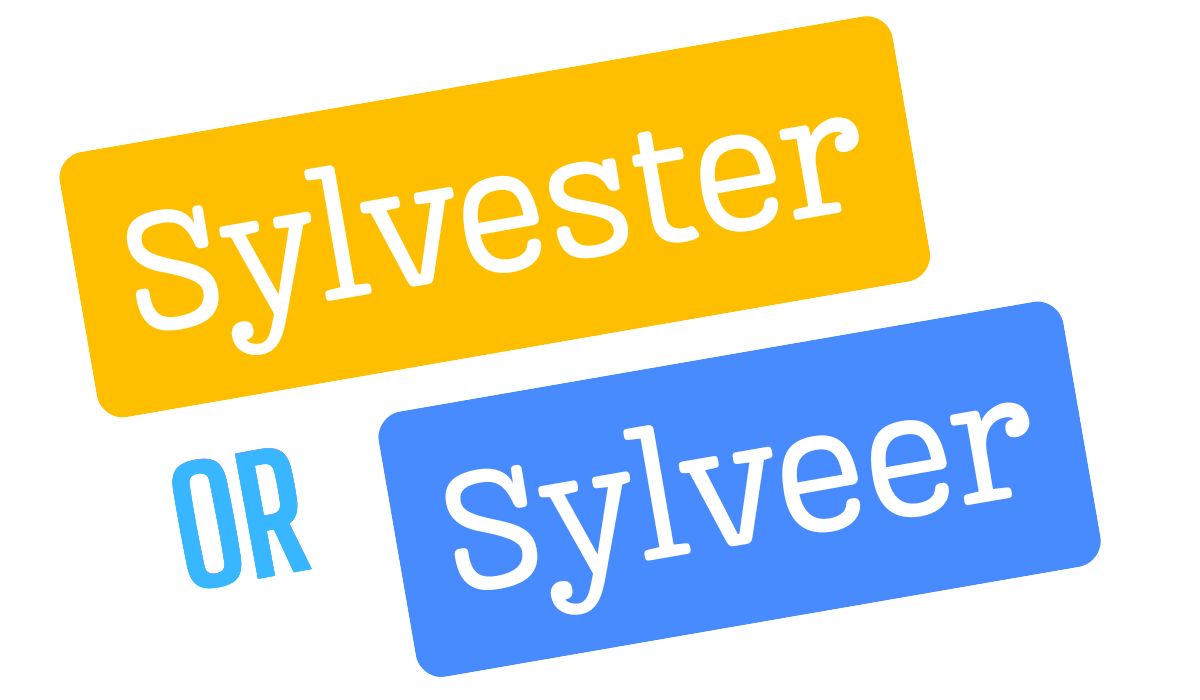
Names are strange things. They carry history, expectation, and sometimes, an entire personality in just a few syllables. A single letter can shift the feel of a name entirely—take Sylveer and Sylvester, for example. One feels like a whisper from a forgotten fairy tale, the other a sturdy, old-world name with a hint of cartoonish charm. But which is “better”? Does it even matter?
This isn’t just about spelling or pronunciation. It’s about how a name shapes perception, how it lingers in the mind, and why some variations feel more “right” than others, even if logic can’t fully explain it.
The Case for Sylvester
Let’s start with the more familiar of the two: Sylvester. It’s a name with roots deep in Latin (Silvester, meaning “of the forest”), and it carries a certain gravitas. There’s Sylvester Stallone, of course—the man who turned the name into a byword for tough-guy charisma. There’s also Sylvester the Cat, the eternally thwarted Looney Tunes character whose name somehow makes his failures funnier.
Sylvester feels complete, traditional, like a name that’s been passed down through generations. It’s the kind of name you’d find carved into an old church pew or scribbled in the margins of a 19th-century ledger. There’s weight to it, a sense of history.
But that weight can also be a burden. Sylvester is an expectation—it suggests a particular kind of person, whether fair or not. If you meet a Sylvester, you might unconsciously assume he’s either a retired boxer or a man who owns at least one pocket watch. The name does a lot of work before the person even speaks.
The Allure of Sylveer
Then there’s Sylveer. At first glance, it might seem like a misspelling, a typo that somehow stuck. But dig a little deeper, and it’s clear this variation has its magic. The double *e* softens the name, giving it an almost ethereal quality. It feels less like a relic and more like something out of a fantasy novel—a wandering bard, maybe, or a mysterious figure who appears only in moonlight.
Sylveer is rare, which works in its favour. Unlike Sylvester, it doesn’t come with preconceived notions. There’s no famous actor or cartoon cat attached to it (yet), so it feels like a blank slate. That’s liberating in a way. A person named Sylveer gets to define the name, rather than the other way around.
But rarity has its downsides. Sylveer might spend a lifetime correcting people—”No, not Sylvester, Sylveer, with two e’s”—and that gets tiresome. Names are supposed to make life easier, not harder. And while uniqueness is appealing, there’s also comfort in fitting in, in not having to explain yourself constantly.
The Cultural Lens
Names don’t exist in a vacuum. Where you’re from, what language you speak, even what decade you were born in can change how a name is received.
In French, Sylvère is a known (if uncommon) variant, carrying a poetic, almost pastoral feel. In Dutch, Silveer pops up occasionally, often as a nod to Silver (zilver). But in English-speaking countries, Sylveer feels like an outlier, a deliberate twist on the familiar. That can be a strength—it signals creativity, a refusal to just go with the default. But it can also feel like an affectation, depending on who’s using it.
Sylvester, on the other hand, is a global citizen. It’s been adopted (and adapted) across languages and cultures, from Italian Silvestro to German Silvester. It’s a name that travels well, which is no small thing in an increasingly connected world.
The Sound of It
Say them both out loud: Syl-vee-ster versus Syl-veer. The first has a rhythm, a cadence that lands firmly. The second trails off, lighter, almost unfinished. That’s neither good nor bad—just different.
Some people prefer names that feel solid and dependable. Others like names that float, that leave room for interpretation. It’s the difference between a handshake and a whisper.
Which One Wins?
There’s no objective answer, of course. It depends on what you value.
If you like tradition, recognizability, and a name that carries its legacy, Sylvester is the clear choice. It’s a name that has weathered time, that people know how to spell and say without thinking.
But if you’re drawn to the unusual, to names that feel like they belong in a storybook, Sylveer has a quiet power. It’s a name that invites curiosity, that stands out without shouting.
In the end, a name is just a collection of letters until a person fills it with meaning. Sylvester Stallone made his name synonymous with resilience. Sylvester the Cat turned it into a punchline. A Sylveer somewhere in the world might be doing something entirely different with theirs.
And maybe that’s the real lesson here: it’s not the name that defines the person, but the person who determines the name. Whether it’s Sylveer or Sylvester, the best names are the ones that grow with the people who bear them.
FAQs: Sylveer vs. Sylvester
1. Is Sylveer a real name, or just a misspelling of Sylvester?
Yes, Sylveer is a real name, though it’s far less common than Sylvester. It appears in some European languages (like Dutch and French) as a variant, often linked to words meaning “silver” or “forest.” While it might look like a typo to English speakers, it’s a legitimate (if rare) alternative.
2. Which spelling is more popular?
Sylvester is vastly more popular worldwide, thanks in part to famous namesakes like Sylvester Stallone and Sylvester the Cat. Sylveer is much rarer, making it a distinctive choice—but also one that might require frequent corrections.
3. Do Sylveer and Sylvester have the same meaning?
Essentially, yes. Both names trace back to the Latin Silvester, meaning “of the forest” or “wooded.” However, Sylveer (or Silveer) in Dutch can also be associated with zilver (“silver”), adding a subtle layer of meaning.
4. Would Sylveer be seen as a “made-up” name?
Some might assume so, especially in English-speaking countries where Sylvester is the standard. However, in particular European contexts, Sylveer is a recognised (if uncommon) variant. Whether that matters depends on personal preference—some love unique names, while others prefer tradition.
5. Which name is easier to live with?
Sylvester is more familiar, so it’s less likely to be misspelled or mispronounced. Sylveer, while distinctive, might mean a lifetime of saying, “No, not Sylvester—Sylveer, with two e’s.” That said, if standing out is the goal, the rarity could be a plus.
6. Are there any famous people named Sylveer?
Not many—it’s a very uncommon name in the public sphere. The most well-known figures with similar names are Sylvester Stallone and Sylvester McCoy (the actor who played the Seventh Doctor in Doctor Who), both using the traditional spelling.
7. Does Sylvester always have cartoonish associations because of Sylvester the Cat?
For some people, yes. Pop culture casts a long shadow, and Looney Tunes’ Sylvester is one of the first references that comes to mind. That said, names like Elmer (Fudd) and Bugs (Bunny) haven’t been completely overshadowed by their cartoon counterparts—so it’s possible to reclaim the name.
8. Could Sylveer be a unisex name?
Traditionally, both Sylvester and Sylveer are masculine, but names evolve. With the rise of gender-neutral naming trends, it’s possible to imagine Sylveer being adapted—though it would still be an unconventional choice.
9. Which name sounds more “modern”?
Sylveer feels more contemporary, partly because of its rarity and the trend toward unique spellings. Sylvester leans classic, even old-fashioned—though vintage names are making a comeback.
10. If I prefer Sylveer but worry about confusion, is there a compromise?
You could consider Silas (a related name meaning “forest”), Sylvain (French variant), or even Silver as alternatives. But if Sylveer speaks to you, the occasional correction might be a small price for a name you love.




